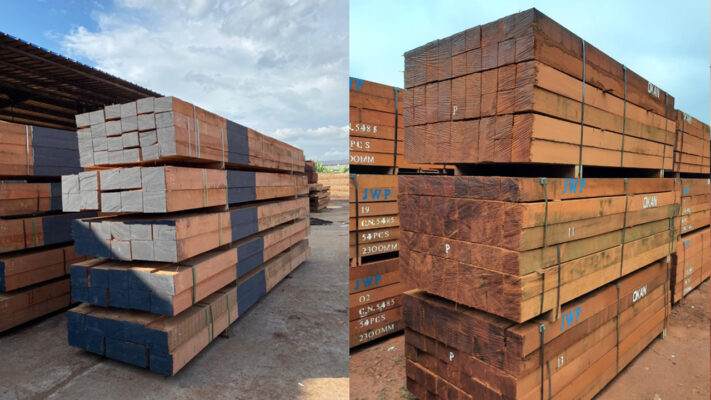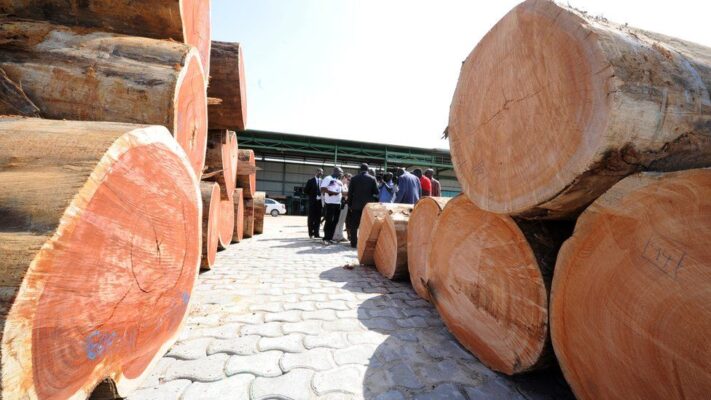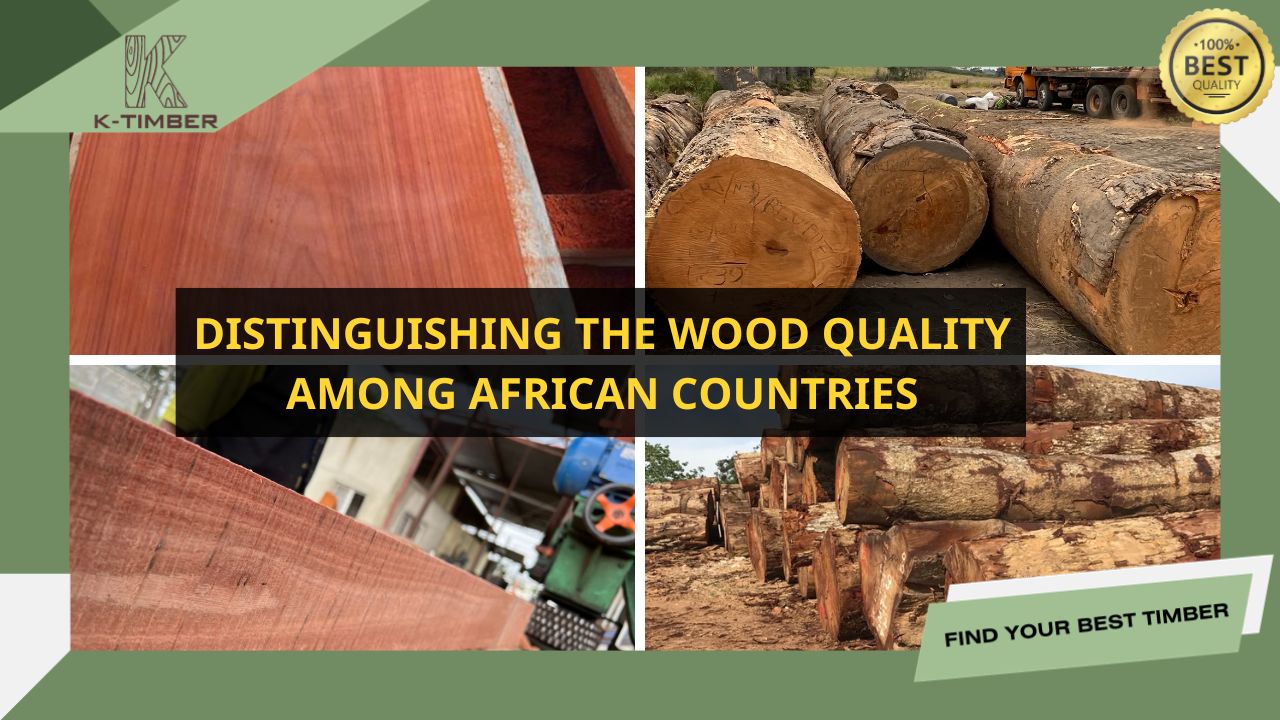Africa is known for its rich and diversified natural resources, with the forestry industry playing an important part in the continent’s economic development. From the tropical rainforests to the savannas and woods of the east and south, many nations have emerged as important timber exporters, boosting their economies and changing the international marketplace.
Here, we will delve into the top 5 African countries leading the way in timber exports:
Table of Contents
1. Cameroon
The Central African Timber Export Giant Cameroon stands as one of Africa’s biggest timber exporter countries, contributing substantially to the global timber trade. With over 60% of its land area covered by forests, Cameroon is home to a diverse range of timber species, providing a rich source of valuable hardwoods. Cameroon exported over 1.3 million cubic meters of timber in 2023, generating revenue of around $650 million. Its main exported wood types include Sapele, Azobe, and Ayous. Sapele’s distinct reddish-brown color and durability make it prized for furniture, cabinetry, flooring and decorative uses.

Cameroon’s strategic location in Central Africa has played a pivotal role in its success as a timber exporter. Cameroon’s key export markets are the European Union, China, and Vietnam. Its major advantages lie in its strategic location that facilitates shipping and the diverse range of wood species available. However, illegal logging persists as an issue in some areas.
2. Gabon
Gabon is another leading force among Africa’s biggest timber exporter countries. This timber-rich nation is a major player in the export market, exporting around 2.2 million cubic meters of timber valued at over $800 million in 2023. Top exports include Okoumé (a light, versatile wood ideal for plywood), Ozigo and Padouk hardwoods. Gabon primarily exports to China, India, France, and Belgium.
Its strengths are stringent forestry laws and sustainable management practices, this approach has not only preserved Gabon’s valuable timber resources but has also positioned the country as a responsible and eco-friendly timber exporter, meeting the growing global demand for sustainably sourced wood products. However, the strict forestry laws also have drawbacks on the exporting timber business when it can raise the cost of wood due to sustainable management. Additionally, Gabon is also one of the countries that lacks many documents when it comes to exporting.
3. Angola
Angola is emerging as a new player in the African timber export market in recent years. In 2023, the country’s timber exports reached around 600,000 cubic meters, worth $220 million. The country has huge areas of woodland, including miombo woodlands, a unique woodland ecosystem. One of Angola’s most valuable timber exports is the Iroko wood, also known as African teak, is a highly prized hardwood known for its durability, resistance to termites and fungi, and beautiful grain pattern. This wood species is native to Angola and represents a valuable export opportunity. Other key species exported include Angolan Sapele and Sipo.

For the emerging exporter Angola, top markets are China, Portugal, and India. The advantages of Angola are the forests still being underexploited, thereforeso resources are abundant and prices are low. However, the disadvantage Angola has to face is that they can only export sawn timber and not logs due to the current government policy.
4. The Democratic Republic of the Congo (DRC)
The DRC is a nation on the rise in the realm of African timber exports. The country exported around 900,000 cubic meters valued at $300 million in 2023. This biodiversity hotspot contains a wealth of important timber species, including the very popular Okoumé, Wengé, and Limba – a distinctive, dark wood used for furniture. With the world’s second-largest rainforest, the DRC has immense forestry potential.
The Democratic Republic of the Congo exports mainly to China, the EU, and the USA. While it has enormous undeveloped forestry potential and low timber prices, extensive illicit logging and lack of facilities limit its advancement.
5. Ghana
Ghana has long been a significant player in Africa’s timber export market, thanks to its rich forestry heritage and a thriving value-added timber products industry. In 2023, it exported around 400,000 cubic meters worth $120 million. Top woods are Mahogany, Odum and Wawa – valuable hardwood species for furniture and construction.
Ghana’s timber exports go largely to India, China and the EU. It offers quality wood species and some value-added processing capabilities. Regardless, similarly to other African nations, Ghana also faces challenges such as illegal logging and deforestation. This is a crucial factor in Ghana’s difficulty in becoming a leading timber exporter.

May so you like: Top 5 African Wood Suppliers in the World
In conclusion, while some countries have emerged as models for sustainable practices, illegal logging and deforestation remain persistent threats across the region. Addressing these challenges is crucial to ensuring a thriving future for Africa’s biggest timber exporter countries and their valuable forestry industries.
For timber importers seeking high-quality African wood products, factors such as wood quality, sustainability commitments, costs, and logistics must be carefully weighed. One of the top African wood suppliers can be mentioned is K-Timber, based in Angola with nearly 30 years in business, we are confident to provide you the best services and ready to advise on the right types of African wood for your needs. Do not hesitate to comment below the article or contact us via WhatsApp (+84) 84 444 4693.











